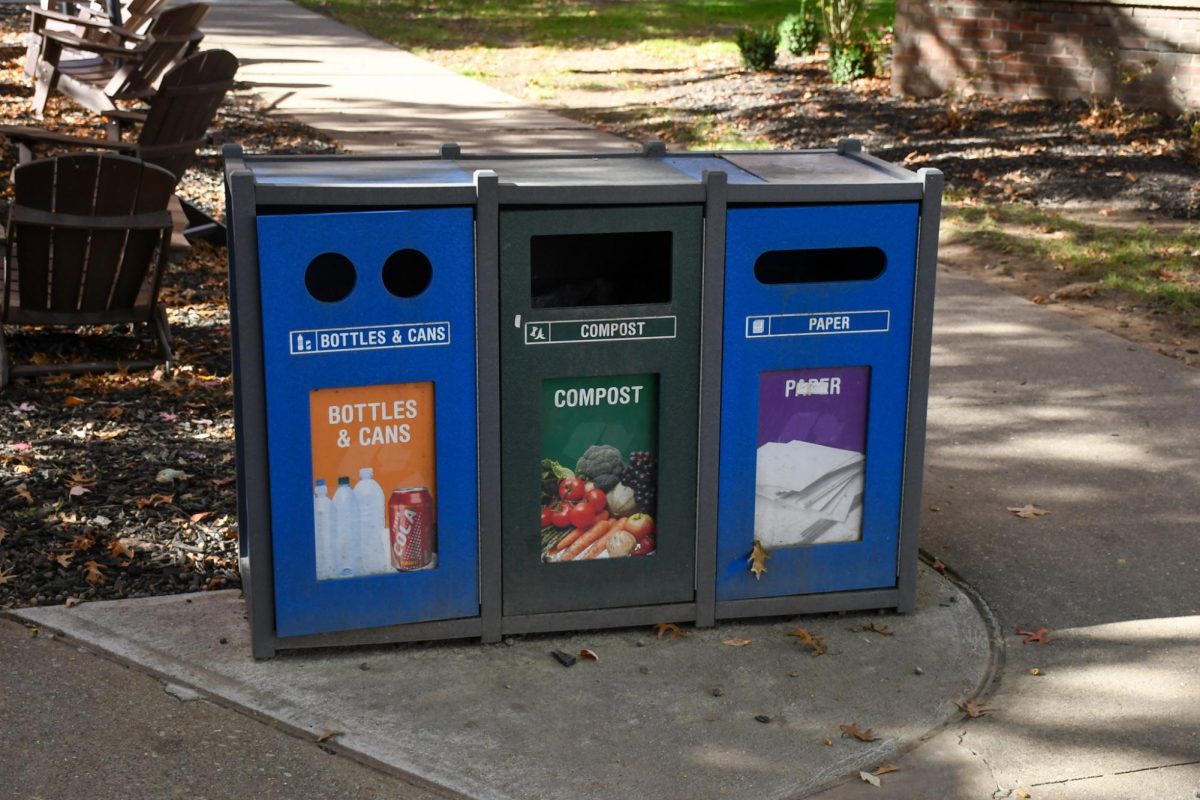President Donald Trump issued an executive order on March 20 directing Secretary of Education Linda McMahon to “facilitate the closure of the Department of Education and return authority over education to the states and local communities,” beginning the process of dismantling the Department of Education.
“My administration will take all lawful steps to shut down the department. We’re going to shut it down and shut it down as quickly as possible. It’s doing us no good,” Trump said at the signing ceremony with McMahon in attendance.
The White House has said the federal student loan program and the Title I program that provides assistance to high-poverty school districts will not be affected.
Fiona Reynolds, a Marshall junior majoring in elementary education, believes this executive order will create challenges for current and future educators.
“First of all, I think funding is a big issue,” Reynolds said. “About 10% of a state’s education budget comes from the federal government. Sure, 10% does not sound like a lot, but that is hundreds of thousands of dollars.”
With cuts having already been made across the state in various educational programs, Reynolds said it all comes down to money.
“We’re already seeing that here in West Virginia; they’ve cut the career literacy programs,” Reynolds said. “They are no longer required to have gifted education in the middle schools, and they’re cutting special education programs, and that creates barriers for educators who are looking for jobs.”
Reynolds said the funding cuts that will come from the dismantling of the Department of Education will have detrimental effects on student success and available resources.
“Education is the foundation for success, and if we’re taking away funding and we’re taking away teachers and resources, then these students that rely on those things are going to struggle. If we don’t give them the things necessary for their success, then they’re not going to be successful later in life,” Reynolds said.
Already underserved communities will be heavily impacted, and existing gaps in education will be worsened as a result of the order, Reynolds said.
“I really do think that it will have a tremendous impact on our education system and, particularly, those people who are already underserved,” Reynolds said. “I think the gap is going to widen.”
English professor Hilary Brewster said she was not surprised by the executive order.
“My initial reaction is probably not fit to print, but I was not surprised because this was very clearly outlined in Project 2025, which has been the guiding instrument for this administration,” Brewster said. “I was not surprised because anybody paying attention knew it was going to happen.”
“My second reaction was a mix of anger, fear, disgust and dread, really,” she said.
Brewster said she strongly disagrees with McMahon’s appointment as the secretary of education.
“I also want it stated on the record that the fact that Linda McMahon is the secretary of education is so unbelievably, comically laughable that it almost does not bear commentary,” Brewster said. “I would not, with all of my qualifications, consider myself qualified to be the secretary of education, let alone the former president of the WWE.”
Brewster said she believes the executive order is part of the administration’s strategy to attack and hinder education and educational equity.
“Going after teachers, education curricula and school, especially focusing on students with learning disabilities, is literally a play out of the fascist playbook,” Brewster said. “It’s one of the first things that authoritarian governments do is they go for the professors. J.D. Vance has said that the professors are the enemy.”
Because West Virginia relies on the Department of Education to help manage gaps in educational resources and funding, Brewster said West Virginia will be hit especially hard by the elimination of the Department of Education.
“States like West Virginia are going to be hit harder by the elimination of the Department of Education because the Department of Education sort of steps in to fill the gaps, whether that’s in funding or resources or just in making sure that various standards and policies that pertain to equity are abided by the local system,” Brewster said.
Brewster also said the elimination of the Department of Education will impact students with learning differences because there will no longer be a body to oversee enforcement of the Individuals with Disabilities Education Act.
“This is going to impact students with learning differences because there will be no oversight of the IDEA ruling. This is going to impact students of color – this is going to impact students who are from a lower socioeconomic background,” Brewster said.
A reduction in staff and resources alongside larger class sizes will likely be the result of the order, Brewster said.
“We are going to see not only a reduction in staff, which is already happening in West Virginia but a reduction of resources,” Brewster said. “Class sizes are going to get bigger; materials to help students learn in the 21st century are already at a premium and less available for marginalized students from districts that are from an economic area that has more barriers.”
Brewster voiced her frustration with people with no background in education being placed in charge of overseeing education.
“It is deeply frustrating, especially about this administration, but just politicians in general, that people with absolutely zero expertise in the art and science of education are the people making the decisions,” Brewster said.
Ashton Pack can be contacted at pack173@marshall.edu.



















